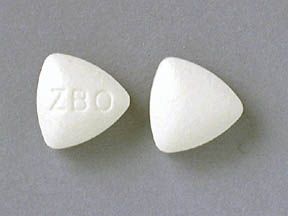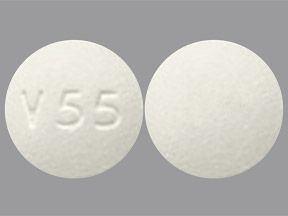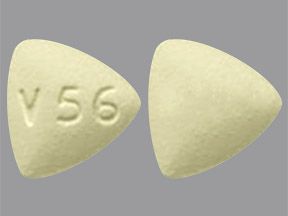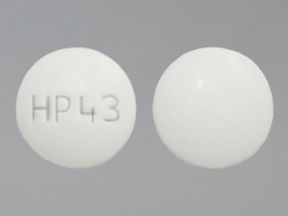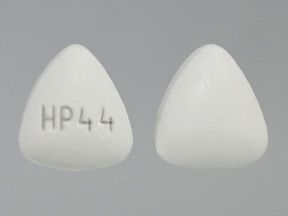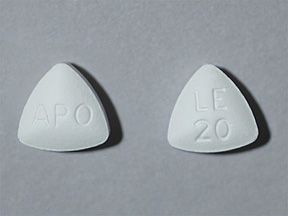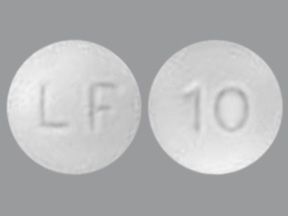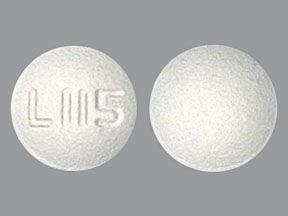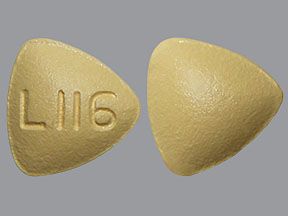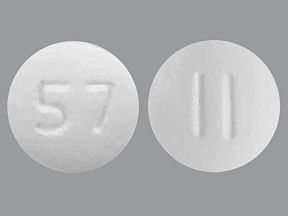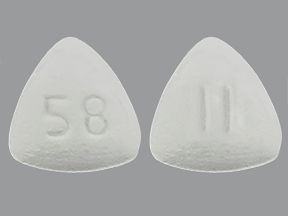Leflunomide oral tablets are a generic prescription medication. They’re FDA-approved to treat rheumatoid arthritis (RA) in adults.
With RA, your immune system mistakenly attacks your own body, primarily your joints. This leads to pain, stiffness, swelling, and tenderness in your joints. Joint problems from RA may cause problems with your balance.
Over time, inflammation due to RA can damage or even deform your joints.
Drug details
Leflunomide belongs to a group of drugs called disease-modifying antirheumatic drugs (DMARDs). (A medication class is a group of drugs that work in the same way.)
Leflunomide comes as oral tablets that you’ll swallow. They’re available in two strengths: 10 milligrams (mg) and 20 mg.
Brand-name versions
Leflunomide oral tablets are a generic drug. They’re available as a brand-name medication called Arava.
Both Arava and leflunomide come as tablets that you’ll swallow. You can get both generic leflunomide and brand-name Arava in strengths of 10 mg and 20 mg. Unlike generic leflunomide, Arava is also available in a 100-mg strength.
Effectiveness
For information about the effectiveness of leflunomide oral tablets, see the “Leflunomide oral tablets uses” section below.
Leflunomide oral tablets is a generic drug. A generic drug is an exact copy of the active drug in a brand-name medication. Arava is the brand-name medication that leflunomide oral tablets is based on. A generic is considered to be as safe and effective as the original drug. Generics tend to cost less than brand-name drugs.
If you’re interested in using Arava instead of leflunomide oral tablets, talk with your doctor. They can tell you if Arava comes in strengths that can be used for your condition. If you have insurance, you’ll also need to check whether your plan will cover Arava.
To learn more about how generics compare with brand-name drugs, see this article.
Leflunomide oral tablets can cause mild or serious side effects. The following lists contain some of the key side effects that may occur while taking leflunomide oral tablets. These lists do not include all possible side effects.
For more information about the possible side effects of leflunomide oral tablets, talk with your doctor or pharmacist. They can give you tips on how to deal with any side effects that may be concerning or bothersome.
Note: The Food and Drug Administration (FDA) tracks side effects of drugs it has approved. If you would like to notify the FDA about a side effect you’ve had with leflunomide oral tablets, you can do so through MedWatch.
Mild side effects
Mild side effects* of leflunomide oral tablets can include:
- diarrhea
- respiratory infections, such as bronchitis
- nausea
- headache
- rash
- mildly elevated liver enzymes
- upset stomach
- weakness
- back pain
- hair loss**
Most of these side effects may go away within a few days or a couple of weeks. But if they become more severe or don’t go away, talk with your doctor or pharmacist.
* This is a partial list of mild side effects from leflunomide oral tablets. To learn about other mild side effects, talk with your doctor or pharmacist, or view leflunomide oral tablets’ prescribing information.
** For more information about this side effect, see “Side effect details” below.
Serious side effects
Serious side effects from leflunomide oral tablets aren’t common, but they can occur. Call your doctor right away if you have serious side effects. Call 911 or your local emergency number if your symptoms feel life threatening or if you think you’re having a medical emergency.
Serious side effects and their symptoms can include:
- Severe skin reactions, which can be life threatening, including Stevens-Johnson syndrome, toxic epidermal necrolysis, and drug reaction with eosinophilia and systemic symptoms. Symptoms can include:
- Peripheral neuropathy (a type of nerve damage). Symptoms can include:
- Interstitial lung disease (inflammation and scarring in your lungs). Symptoms can include:
- Bone marrow problems, which may lead to leukocytosis (high white blood cell level) and thrombocytopenia (low platelet level). (These often don’t cause symptoms unless they become severe, so your doctor will order blood tests to monitor for them.) Symptoms may include:
- Increased blood pressure, which can be dangerous in people who already have high blood pressure, but it may not cause symptoms. Possible symptoms include:
- Severe liver damage.*†
- Ocular (eye-related) side effects.*
- Allergic reaction.*
- Fetal harm, if used during pregnancy.†‡
* For more information about this side effect, see “Side effect details” below.
† Leflunomide has a
‡ For more information about this risk, see the “Leflunomide oral tablets and pregnancy” section below.
Side effect details
Here are some details on certain side effects this drug may cause.
Severe liver damage
Serious and even life threatening liver damage has been reported in people taking leflunomide. In fact, leflunomide has a
Boxed warnings are the most serious warning given to a medication from the Food and Drug Administration (FDA). These warnings alert doctors and patients about drug effects that may be dangerous.
Your doctor will check to see if your liver is healthy enough for you to start taking leflunomide. Tell your doctor about all of the medications you take, including any over-the-counter medications or supplements. This way, your doctor can see if any other medications you take may also cause liver damage.
Your doctor will monitor your liver health using certain blood tests while you’re taking leflunomide. You’ll likely need to have these blood tests at least once a month for your first 6 months of treatment. Then, you’ll likely have them every 6 to 8 weeks after that.
If your doctor notices an unusual result on your lab tests, they may have you temporarily or permanently stop taking leflunomide. And they’ll probably prescribe another treatment to help your body more quickly remove leflunomide’s active metabolite* called teriflunomide.
Possible symptoms of liver damage include jaundice (yellowing of your skin and the whites of your eyes), abdominal pain, and dark urine. If you have any of these symptoms, call your doctor. They can check to see if your liver is affected by this drug.
If you have additional questions about leflunomide and liver health, talk with your doctor or pharmacist.
* A drug’s active metabolite is made when your body breaks down an ingredient in the drug. The active metabolite produces the drug’s intended effect in your body.
Hair loss
You may experience hair loss with leflunomide.
Hair loss was reported by people taking the drug in clinical trials. Although it was common compared with some other side effects, it didn’t occur in most people taking the drug.
Talk with your doctor if you have hair loss while you’re taking leflunomide. They may prescribe a treatment to help with hair growth. They may also modify your treatment plan, which could include stopping leflunomide.
Ocular side effects
Although it’s very rare, you may have ocular side effects from leflunomide. These side effects affect your eyes.
Ocular side effects reported with leflunomide include:
Call your doctor right away if you notice any symptoms affecting your eyes while you’re taking leflunomide. Your doctor will likely want to examine your eyes. And they may recommend you stop taking this drug.
Symptoms of ocular side effects may be reversible if you stop taking leflunomide. However, you should talk with your doctor before making changes to your treatment plan.
Allergic reactionAs with most drugs, some people can have an allergic reaction after taking leflunomide oral tablets.
Symptoms of a mild allergic reaction can include:
- skin rash
- itchiness
- flushing (temporary warmth, redness, or deepening of skin color)
A more severe allergic reaction is rare but possible. Symptoms of a severe allergic reaction can include:
- swelling under your skin, typically in your eyelids, lips, hands, or feet
- swelling of your tongue, mouth, or throat
- trouble breathing
Call your doctor right away if you have an allergic reaction to leflunomide, as the reaction could become severe. Call 911 or your local emergency number if your symptoms feel life threatening or you think you’re having a medical emergency.
The dosage of leflunomide oral tablets your doctor prescribes will depend on several factors. These include:
- the type and severity of the condition you’re using leflunomide to treat
- your age
- other medical conditions you have
- side effects you have from leflunomide
The following information describes dosages that are commonly used or recommended. However, be sure to take the dosage your doctor prescribes for you. Your doctor will determine the best dosage to fit your needs.
Drug strengths
Leflunomide oral tablets are available in two strengths:
- 10 milligrams (mg)
- 20 mg
Dosage for rheumatoid arthritis
For rheumatoid arthritis, the recommended dosage of leflunomide oral tablets is 20 mg, taken once each day.
If you have side effects from leflunomide, your doctor may decrease your dosage to 10 mg once each day.
Leflunomide loading dose
Depending on your risk for certain side effects from leflunomide, your doctor may have you start treatment with a loading dose.
For a loading dose, you’ll take a larger dose than usual at the beginning of your treatment. This is used to help the drug start working quickly in your body.
If your doctor decides a loading dose is safe for you, you’ll likely take 100 mg of leflunomide once a day for 3 days. Then you’ll begin taking the usual daily dose of 20 mg.
What if I miss a dose?
If you miss a dose of leflunomide, try and take it as soon as you remember. But if you don’t remember until the next day, just skip the missed dose. Take your next dose at your scheduled time.
You should not take more than one dose of leflunomide to make up for any missed doses. Doing so could increase your risk for side effects from the drug.
To help make sure that you don’t miss a dose, try using a medication reminder. This can include setting an alarm or timer on your phone or downloading a reminder app. A kitchen timer can work, too.
Will I need to use this drug long term?
Leflunomide oral tablets are meant to be used as a long-term treatment. If you and your doctor determine that leflunomide is safe and effective for you, you’ll likely take it long term.
Here are answers to some frequently asked questions about leflunomide oral tablets.
Is leflunomide toxic?
Like all drugs, leflunomide can cause side effects, including some serious ones.
You can view the “Leflunomide oral tablets side effects” section above for details. There, you’ll find information about some mild and serious side effects this drug may cause.
Additionally, leflunomide can be toxic to a pregnancy, so it should not be used while you’re pregnant. For more information about this, see the “Leflunomide oral tablets and pregnancy” section below.
For a full list of leflunomide’s side effects, look at the drug’s prescribing information. You can also talk with your doctor or pharmacist about the safety of this drug.
Does stopping leflunomide cause side effects? Can you stop taking it ‘cold turkey’?
You likely won’t have side effects from stopping leflunomide. This drug is not known to cause withdrawal symptoms, even if it’s stopped “cold turkey” (suddenly).
Keep in mind though, stopping leflunomide may cause symptoms of your condition to come back or worsen. Leflunomide oral tablets are used for rheumatoid arthritis (RA). So stopping this drug could cause RA symptoms to come back.
For this reason, do not stop taking leflunomide without first talking with your doctor or pharmacist. They may suggest other RA treatments if you’d like to stop using this drug.
Does leflunomide cause weight gain or weight loss?
No, weight gain and weight loss weren’t reported in people taking leflunomide during clinical trials for rheumatoid arthritis (RA).
However, weight loss has been reported as a side effect of the drug in other
It’s important to note that weight loss can happen due to liver damage. And this is a rare but possibly serious side effect of leflunomide. In fact, leflunomide has a
If you have unexpected or unintentional weight loss while you’re taking leflunomide, tell your doctor. They can check for possible causes. And they can also see if it’s caused by serious side effects, such as liver damage.
Weight gain could be related to your condition itself. For instance, people with RA, which leflunomide is used to treat, may find it hard to exercise. This is because RA causes joint pain and fatigue (low energy). And not being able to exercise may lead to weight gain.
If you have questions or concerns about your weight while taking leflunomide, talk with your doctor or pharmacist. They can suggest ways to help you maintain a weight that’s healthy for you.
* A boxed warning is the strongest warning required by the Food and Drug Administration (FDA). Boxed warnings alert doctors and patients about drug effects that may be dangerous. For information about leflunomide’s boxed warning, see the “Leflunomide oral tablets side effects” section above.
Can leflunomide treat psoriatic arthritis?
Leflunomide isn’t approved to treat psoriatic arthritis. However, the drug may be used off-label for this condition. (Off-label use is when a drug is prescribed for a condition it isn’t approved to treat.)
If you have additional questions about leflunomide’s uses and treatment for psoriatic arthritis, talk with your doctor or pharmacist.
Is leflunomide a biologic? Can it be taken with a biologic?
No, leflunomide isn’t a biologic drug. (Biologics are made from living cells.) Instead, it’s a disease-modifying antirheumatic drug (DMARD).
It’s not known if taking leflunomide in combination with a biologic is safe or effective for rheumatoid arthritis (RA). This is because this drug combination
Guidelines from the American College of Rheumatology don’t have a recommendation about whether or not leflunomide should be used with a biologic.
If you have questions about using other medications with leflunomide, talk with your doctor or pharmacist.
Alcohol isn’t known to interact with leflunomide oral tablets.
However, alcohol can cause liver damage. And leflunomide can cause serious liver damage. In rare cases, it can even be life threatening. In fact, leflunomide has a
For this reason, it’s best to avoid drinking alcohol while you’re taking leflunomide. This will help keep your liver healthy.
If you have questions about drinking alcohol and taking leflunomide, talk with your doctor.
* A boxed warning is the strongest warning required by the Food and Drug Administration (FDA). Boxed warnings alert doctors and patients about drug effects that may be dangerous. For information about leflunomide’s boxed warning, see the “Leflunomide oral tablets side effects” section above.
Leflunomide oral tablets can interact with several other medications.
Different interactions can cause different effects. For instance, some interactions can interfere with how well a drug works. Other interactions can increase side effects or make them more severe.
Leflunomide oral tablets and other medications
Below is a list of medications that can interact with leflunomide oral tablets. This list does not contain all drugs that may interact with leflunomide.
Before taking leflunomide oral tablets, talk with your doctor and pharmacist. Tell them about all prescription, over-the-counter, and other drugs you take. Also tell them about any vitamins, herbs, and supplements you use. Sharing this information can help you avoid potential interactions.
If you have questions about drug interactions that may affect you, ask your doctor or pharmacist.
Medications that may interact with leflunomide include:
- the blood thinner warfarin (Coumadin)
- the rheumatoid arthritis drug methotrexate (Trexall)
- certain antibiotics, including:
- the diuretic furosemide (Lasix)
- the cancer drug paclitaxel (Abraxane)
- the diabetes medications:
- certain statin drugs, such as:
- the HIV drug zidovudine (Retrovir)
- the irritable bowel syndrome drug alosetron (Lotronex)
- the antidepressant duloxetine (Cymbalta)
- the asthma drug theophylline (Theo-24)
- the muscle relaxant tizanidine (Zanaflex)
- birth control pills that contain ethinyl estradiol and levonorgestrel
Leflunomide oral tablets and herbs and supplements
There aren’t any herbs or supplements that have been specifically reported to interact with leflunomide oral tablets. However, you should still check with your doctor or pharmacist before using any of these products while taking leflunomide.
Leflunomide oral tablets and foods
There aren’t any foods that have been specifically reported to interact with leflunomide oral tablets. If you have any questions about eating certain foods with leflunomide, talk with your doctor.
Other drugs are available that can treat rheumatoid arthritis (RA). Some may be a better fit for you than others. If you’re interested in finding an alternative to leflunomide, talk with your doctor. They can tell you about other medications that may work well for you.
Note: Some of the drugs listed below are used off-label to treat these specific conditions. Off-label means using a drug for a purpose other than what it’s been approved for by the FDA.
Examples of other drugs that may be used to treat RA include:
- prednisone
- nonsteroidal anti-inflammatory drugs (NSAIDs), such as ibuprofen (Advil, Motrin)
- methotrexate (Trexall)
- azathioprine (Imuran)
- hydroxychloroquine (Plaquenil)
- sulfasalazine (Azulfidine)
- abatacept (Orencia)
- adalimumab (Humira)
- anakinra (Kineret)
- etanercept (Enbrel)
- infliximab (Remicade)
- rituximab (Rituxan)
- tofacitinib (Xeljanz)
Leflunomide oral tablets are prescribed to treat rheumatoid arthritis (RA) in adults.
About rheumatoid arthritis
RA is an autoimmune disease. These are conditions that cause your immune system to mistakenly attack parts of your own body. Normally, your immune system just attacks foreign substances, such as bacteria and viruses.
With RA, your immune system attacks your joints, causing inflammation. This leads to symptoms such as pain, stiffness, swelling, and tenderness in your joints. Over time, inflammation due to RA can damage or even deform your joints.
What leflunomide does
Leflunomide’s mechanism of action (how it works) isn’t fully understood. It’s believed that the drug may decrease inflammation by preventing certain immune system cells from forming or working.
This decreases your immune system’s activity, reducing inflammation in your joints. This helps treat symptoms of RA. It can also help slow the worsening of RA over time.
How long does it take to work?
Leflunomide can take a few weeks or even months before it begins working to treat RA symptoms. This drug won’t give fast relief of pain or other RA symptoms. Instead, it’s meant to work over time to reduce RA symptoms and stop the condition from getting worse.
How long does it last in your body?
Leflunomide has a half-life of about 18 to 19 days. This means it takes 18 to 19 days for your body to clear half a dose of the drug.
As with all medications, the cost of leflunomide oral tablets can vary. The actual price you’ll pay depends on your insurance plan, your location, and the pharmacy you use.
Keep in mind that you may be able to get a 90-day supply of leflunomide oral tablets. If approved by your insurance company, getting a 90-day supply of the drug could reduce your number of trips to the pharmacy and help lower the cost. If you’re interested in this option, check with your doctor or your insurance company.
Before approving coverage for leflunomide oral tablets, your insurance company may require you to get prior authorization. This means that your doctor and insurance company will need to communicate about your prescription before the insurance company will cover the drug. The insurance company will review the prior authorization request and decide if the drug will be covered.
If you’re not sure if you’ll need to get prior authorization for leflunomide oral tablets, contact your insurance company.
Financial and insurance assistance
Financial assistance to help you pay for leflunomide oral tablets may be available.
Medicine Assistance Tool and NeedyMeds are two websites offering resources that may help decrease the price you pay for leflunomide oral tablets. They also offer tools to help you find low-cost healthcare, as well as educational resources. To learn more, visit their sites.
Mail-order pharmacies
Leflunomide oral tablets may be available through a mail-order pharmacy. Using this service may help lower the drug’s cost and allow you to get your medication without leaving home.
If recommended by your doctor, you may be able to receive a 90-day supply of leflunomide, so there’s less concern about running out of the medication. If you’re interested in this option, check with your doctor and your insurance company. Some Medicare plans may help cover the cost of mail-order medications.
If you don’t have insurance, you can ask your doctor or pharmacist about online pharmacy options.
The Food and Drug Administration (FDA) approves prescription drugs such as leflunomide oral tablets to treat certain conditions.
Leflunomide is approved for treating rheumatoid arthritis (RA) in adults.
Leflunomide oral tablets may also be used off-label for other conditions. Off-label drug use means using a drug for a purpose other than what it’s been approved for by the FDA.
Leflunomide oral tablets for rheumatoid arthritis
RA is an autoimmune disease. These are conditions that cause your immune system to mistakenly attack healthy tissues in your body. Normally, your immune system attacks foreign substances, such as bacteria and viruses.
With RA, your immune system mistakenly attacks your joints, causing inflammation. This leads to RA symptoms such as pain, stiffness, swelling, and tenderness in your joints. Joint problems from RA can cause you to have problems with balance.
Over time, inflammation due to RA can damage or even deform your joints.
Left untreated over time, RA can begin causing damage to other parts of your body besides your joints. Other areas commonly affected include your eyes, heart, and lungs. You may also have other symptoms as RA gets worse over time, such as fatigue (lack of energy) and a mild fever.
Sometimes, RA symptoms seem to suddenly worsen. This is known as a flare-up. At other times, RA symptoms are lessened or may even seem to go away. This is known as remission.
It’s not fully understood how leflunomide works to treat RA. It’s believed it may decrease inflammation by preventing certain immune system cells from forming or working.
Effectiveness for rheumatoid arthritis
Clinical trials showed leflunomide to be effective in treating RA in adults. To see how the drug performed in these trials, view its prescribing information.
Guidelines from the American College of Rheumatology list leflunomide as a treatment option for adults with RA.
To learn more about leflunomide’s effectiveness in treating RA, talk with your doctor or pharmacist.
Leflunomide oral tablets and children
Leflunomide oral tablets are only approved for use in adults. The drug isn’t approved for use in children.
Depending on the severity of your rheumatoid arthritis (RA), leflunomide may be prescribed alone or with other drugs.
Prednisone and methotrexate are two medications that may be used with leflunomide. Use of these medications is described below.
If you have additional questions about using leflunomide with other drugs, talk with your doctor or pharmacist.
Leflunomide with prednisone
Your doctor may prescribe prednisone when you first start taking leflunomide.
This is because leflunomide can take a few weeks or even months to start working to treat your RA symptoms. On the other hand, corticosteroids such as prednisone can quickly relieve RA symptoms.
However, corticosteroids can cause serious side effects if they’re used long term. So it’s common for people to take prednisone for a short time when starting leflunomide to help relieve RA symptoms more quickly.
Leflunomide with methotrexate
Your doctor may prescribe methotrexate (Trexall) if leflunomide isn’t working well by itself. Or they may prescribe leflunomide if you’re already taking methotrexate but it isn’t working well.
In either case, taking these medications together can increase your risk for side effects. This includes severe ones, such as liver damage.*
Your doctor may decrease the dosage of either medication if you’re taking leflunomide and methotrexate together. And they may monitor you more closely than usual for side effects during treatment.
* Leflunomide has a
It’s not safe to take leflunomide during pregnancy. In fact, leflunomide has a
A boxed warning is the strongest warning required by the Food and Drug Administration (FDA). It alerts doctors and patients about drug effects that may be dangerous.
Taking leflunomide may cause serious harm to a pregnancy. So leflunomide is contraindicated for use during pregnancy. (A contraindication is a factor or condition in which a treatment should not be used due to risk of harm.)
If you’re able to become pregnant, you’ll need a negative pregnancy test confirmed by your doctor before you can start taking this drug. And you’ll need to use birth control while taking leflunomide. (See “Leflunomide oral tablets and birth control” just below for details.)
If you become pregnant while taking leflunomide, you’ll need to immediately stop taking the drug. And your doctor will prescribe another treatment to help your body more quickly remove leflunomide’s active metabolite* called teriflunomide.
If you become pregnant while you’re taking leflunomide, you and your doctor should report this to the drug’s pregnancy exposure registry. This registry follows pregnancies affected by leflunomide. Pregnancy registries gather information that can be used by doctors and patients to understand the risks and benefits of using certain drugs during pregnancy. To learn more, call 877-311-8972 or visit the pregnancy exposure registry’s website.
* A drug’s active metabolite is made when your body breaks down an ingredient in the drug. The active metabolite produces the drug’s intended effect in your body.
It isn’t safe to take leflunomide during pregnancy. This drug may cause serious harm to a pregnancy.*
For more information about leflunomide oral tablets and pregnancy, see the “Leflunomide oral tablets and pregnancy” section just above.
If you’re sexually active and you or your partner can become pregnant, talk with your doctor about your birth control needs while you’re using leflunomide oral tablets.
Below are some general recommendations for males and females taking this drug.†
* Leflunomide has a
† Sex and gender exist on spectrums. Use of the terms “male” and “female” in this article refers to sex assigned at birth.
For females using leflunomide oral tablets
If you’re a female who’s able to become pregnant, you’ll need a negative pregnancy test confirmed by your doctor before you can start leflunomide.
You’ll also need to use birth control while taking this medication and for up to 2 years after your last dose.
If you’d like to become pregnant within 2 years after stopping leflunomide, your doctor can prescribe another treatment. This other treatment helps your body more quickly remove leflunomide’s active metabolite* called teriflunomide.
However, you’ll still need to continue using birth control until your doctor can confirm that your teriflunomide level is low enough to be safe in pregnancy.
* A drug’s active metabolite is made when your body breaks down an ingredient in the drug. The active metabolite produces the drug’s intended effect in your body.
For males using leflunomide oral tablets
The manufacturer of leflunomide hasn’t given birth control recommendations for males using their drug.
If you’re a male taking leflunomide and you’re sexually active with a female who’s able to become pregnant, talk with your doctor about your birth control needs.
You should not breastfeed while you’re taking leflunomide.
It’s not known if leflunomide passes into human breast milk. It’s also unknown whether it could cause side effects in a child who’s breastfed. Additionally, it’s not known if the drug affects your body’s ability to make breast milk.
However, because of the possible risk for serious side effects, it’s recommended that you do not breastfeed while taking leflunomide.
If you’re taking leflunomide, your doctor can suggest other options for feeding your child.
You should take leflunomide oral tablets according to the instructions your doctor or another healthcare professional gives you.
Leflunomide comes as oral tablets that you’ll swallow.
When to take
For rheumatoid arthritis (RA), leflunomide oral tablets are usually taken once each day.
You may take your dose at any time of day. But try to take it at the same time every day. This may help you remember to take the drug.
To help make sure that you don’t miss a dose, try using a medication reminder. This can include setting an alarm or timer on your phone or downloading a reminder app. A kitchen timer can work, too.
Taking leflunomide oral tablets with food
You may take leflunomide oral tablets with or without food.
Can leflunomide oral tablets be crushed, split, or chewed?
The drug’s manufacturer hasn’t stated whether it’s safe to crush, split, or chew leflunomide oral tablets.
If you’re having problems swallowing leflunomide tablets, talk with your doctor or pharmacist. They can provide more information about crushing, splitting, or chewing these tablets. And they may suggest other treatments for RA that may be easier for you to take.
This drug comes with several precautions.
FDA warnings
This drug has
Liver damage. Serious and even life threatening liver damage has been reported in people taking leflunomide oral tablets. Your doctor will check to see if your liver is healthy enough for you to start taking this drug. They’ll also monitor your liver health while you’re taking leflunomide. For more information about this warning, see the “Leflunomide oral tablets side effects” section above.
Harm if used during pregnancy. Leflunomide oral tablets may cause serious harm if they’re used during pregnancy. If you’re able to become pregnant, you’ll need to have a negative pregnancy test before you start taking leflunomide. And you’ll need to use an effective form of birth control during treatment. For more information, see the “Leflunomide oral tablets and pregnancy” and “Leflunomide oral tablets and birth control” sections above.
Other precautions
Before taking leflunomide oral tablets, talk with your doctor about your health history. Leflunomide oral tablets may not be right for you if you have certain medical conditions or other factors affecting your health. These include:
- Lung problems. Leflunomide may cause new or worsened interstitial lung disease (inflammation or scarring in the lung). Rarely, this condition can be life threatening. Before you start taking leflunomide, be sure to tell your doctor if you have any lung or breathing problems. This includes conditions such as chronic obstructive pulmonary disease (COPD). You may have a higher risk for side effects related to your lungs. Your doctor can determine whether it’s safe for you to take leflunomide.
- Immunosuppression or certain blood or bone marrow problems. People with immunosuppression have a weakened immune system and aren’t able to fight off infections like usual. Leflunomide can also make it harder for your immune system to fight off infections. So this drug may not be safe for people with immunosuppressed or certain blood or bone marrow problems. Your doctor can recommend whether leflunomide is safe for you.
- Diabetes. Rarely, leflunomide can cause peripheral neuropathy. (With this condition, you have nerve damage that causes pain or tingling, most commonly in your arms or legs.) People with diabetes may have a higher risk for this side effect with leflunomide. Your doctor can determine if leflunomide is a safe treatment for you.
- Allergic reaction. If you’ve had an allergic reaction to leflunomide oral tablets or any of their ingredients, you should not take the tablets. Ask your doctor what other medications are better options for you.
- Pregnancy. Leflunomide should not be used during pregnancy. For more information, see the “Leflunomide oral tablets and pregnancy” section above.
- Breastfeeding. Leflunomide should not be used while breastfeeding. For more information, see the “Leflunomide oral tablets and breastfeeding” section above.
Note: For more information about the potential negative effects of leflunomide oral tablets, see the “Leflunomide oral tablets side effects” section above.
Do not take more leflunomide oral tablets than your doctor recommends. For some drugs, doing so may lead to unwanted side effects or overdose.
What to do in case you take too much leflunomide
If you think you’ve taken too much of this drug, call your doctor. You can also call the American Association of Poison Control Centers at 800-222-1222 or use their online tool. But if your symptoms are severe, call 911 or your local emergency number, or go to the nearest emergency room right away.
When you get leflunomide oral tablets from the pharmacy, the pharmacist will add an expiration date to the label on the bottle. This date is typically 1 year from the date they dispensed the medication.
The expiration date helps guarantee that the medication is effective during this time. The
Storage
How long a medication remains good can depend on many factors, including how and where you store the medication.
You should keep leflunomide oral tablets in a tightly sealed container away from light. Avoid storing this medication in areas where it could get damp or wet, such as bathrooms.
Leflunomide oral tablets should be stored at room temperature (about 77°F or 25°C). For short periods of time, such as when traveling, the drug may be stored at a temperature:
- as low as 59°F (15°C)
- as high as 86°F (30°C)
However, be sure to return the drug to room temperature as soon as possible.
Disposal
If you no longer need to take leflunomide oral tablets and have leftover medication, it’s important to dispose of it safely. This helps prevent others, including children and pets, from taking the drug by accident. It also helps keep the drug from harming the environment.
This article provides several useful tips on medication disposal. You can also ask your pharmacist for information about how to dispose of your medication.
Disclaimer: Medical News Today has made every effort to make certain that all information is factually correct, comprehensive, and up to date. However, this article should not be used as a substitute for the knowledge and expertise of a licensed healthcare professional. You should always consult your doctor or another healthcare professional before taking any medication. The drug information contained herein is subject to change and is not intended to cover all possible uses, directions, precautions, warnings, drug interactions, allergic reactions, or adverse effects. The absence of warnings or other information for a given drug does not indicate that the drug or drug combination is safe, effective, or appropriate for all patients or all specific uses.

